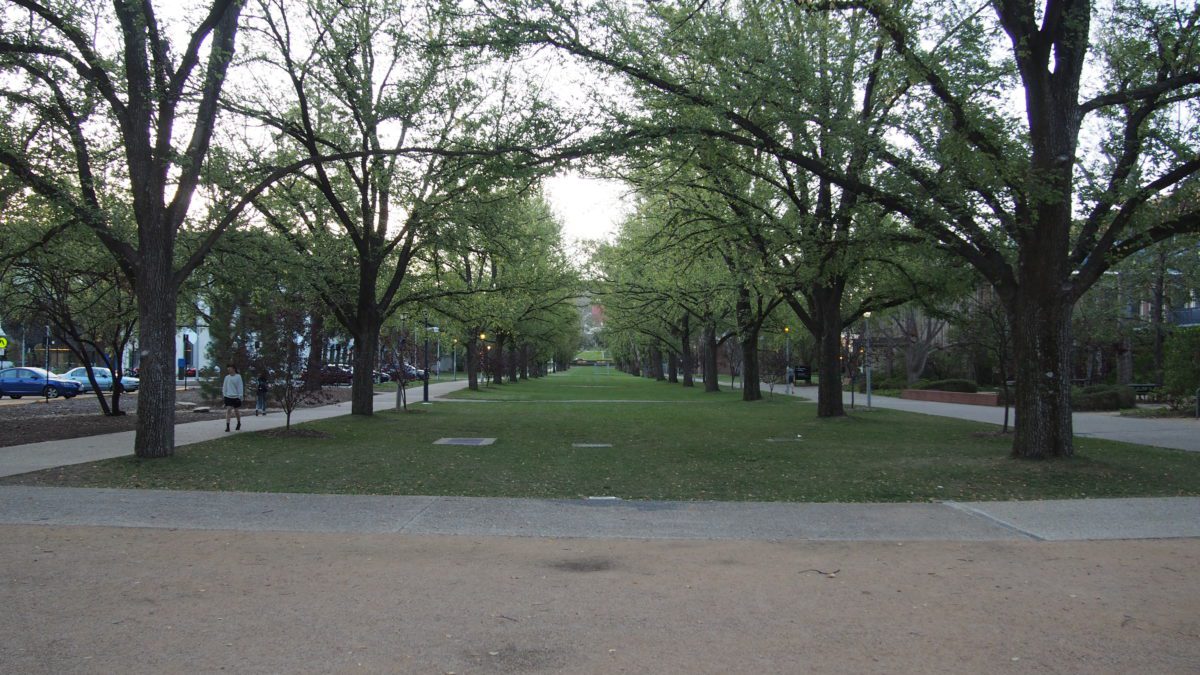Earlier this year the Vice-Chancellor spoke about the importance of trust and why it is fundamental to everything we do here at ANU. We had no idea then that the year would unfold in the way it has, with COVID-19 forcing us to come up with ways to provide you, our students, with a great ANU education at a distance. Once again, thank you all for playing your part in making this work. We have had to change how we teach and learn. It has also meant we have needed to change the way we
assess our students.
One thing that hasn’t changed, however, is the importance of trust, and of truth. In the past two weeks, a lot has been said about Proctorio, the digital tool used by many universities around the world to conduct exams that would normally be invigilated in person. ANU has decided to purchase a licence for Proctorio. This decision has included consultation with students and due diligence. This will mean we can ensure course conveners who need to run exams that require
invigilation can do so, and our students don’t lose the opportunity to achieve credit for this year’s study.
We are aware many students are uncomfortable with what they have heard about this tool. Some of you have raised completely valid and understandable concerns about privacy, security and equity. We understand why you’re asking and why you need answers. We have listened to your concerns and responded to them here. We will continue to respond to any questions we receive. We have put in place necessary arrangements to support the small cohort of students who will need help when it comes to equity, inclusion and technology and the use of Proctorio.
What has been disappointing, though, is how much misinformation has been circulated to discredit
not only Proctorio, but our exams and our university. Students are being encouraged to believe
things that are not true, and I want to ease any anxiety or stress that this may have caused by
focusing on facts. Let’s address some of the incorrect ideas doing the rounds here:
- No, Proctorio can’t spy on you. Any information it collects on you, you will be informed
about. - No, Proctorio cannot access your files.
- No, Proctorio does not use facial recognition.
- No, Proctorio does not collect biometric data.
- No, Proctorio does not monitor what you type. It only monitors that you type.
- No, Proctorio does not have access to your emails.
- No, Proctorio does not have access to your machine.
- No, ANU leaders will not be ‘spying’ on any student.
- No, Proctorio is not a cybersecurity threat. It’s never been hacked.
- No, ANU students will not be allowed to pass this year without assessment.
- No, we are not asking all students to use Proctorio – we will only be using this software for
assessments in a small number of courses. - No, the use of Proctorio is not about cutting costs or replacing staff. These measures actually
cost us more.
To reiterate: Proctorio is a tool to ensure exams requiring invigilation can still take place in these unprecedented times. We didn’t imagine we would ever need to use a tool like Proctorio, but this semester we do. We have rigorously looked at it, our Chief Information Security Officer and other expert advice has supported its use, and so we ask you to trust us when we say Proctorio is the right tool for us to use.
This isn’t a statement we make lightly. The credibility of our exams is also the credibility of our graduates and our university. Employers trust the quality of your education and the knowledge you have worked hard to acquire. We would never take risks with such important matters. When you graduate from ANU, you hold in your hand more than a degree. You hold a key that unlocks doors all over the world.
There is nothing we would like more than to return to campus, to be running exams as we normally would and for the whole pandemic to be in the past. Of course, it isn’t – so we can’t. Traditional exams are incompatible with social distancing, and will put people in our community and beyond at risk. When we can restart them, we will.
And when we do, our objective will be the same as now: to run rigorous exams. I encourage you to
read the facts about Proctorio. We will continue to publish them. I also encourage you to avoid
buying into the scare stories and the hype. Every ANU student is a critical thinker, and we welcome
your scrutiny on these matters. But you should also scrutinise what you are hearing from elsewhere,
and ask yourself whether the rumours and speculation have any credibility.
Nonetheless, I acknowledge there are many valid concerns about this issue. Let’s keep talking about
it. I trust that we can all engage with this issue in good faith – just as I ask you to trust that ANU is
doing everything it can to make sure you graduate on time and with a degree the world admires.
Professor Grady Venville is Deputy Vice-Chancellor (Academic).
We acknowledge the Ngunnawal and Ngambri people, who are the Traditional Custodians of the land on which Woroni, Woroni Radio and Woroni TV are created, edited, published, printed and distributed. We pay our respects to Elders past and present. We acknowledge that the name Woroni was taken from the Wadi Wadi Nation without permission, and we are striving to do better for future reconciliation.
